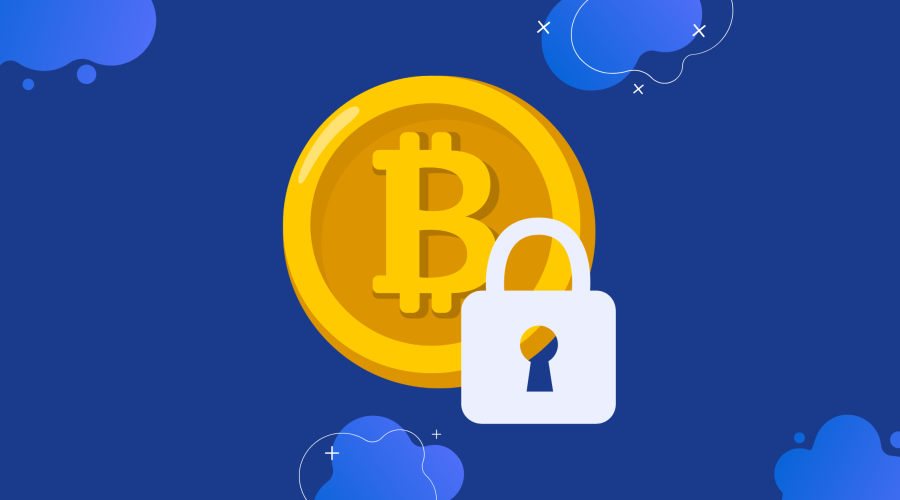In the rapidly evolving landscape of cryptocurrencies, ensuring the security of your digital assets is paramount. Bitcoin, as the pioneering and most well-known cryptocurrency, requires special attention when it comes to safeguarding your holdings. This comprehensive guide will walk you through the best practices for maintaining the security of your Bitcoin wallet, covering essential strategies and precautions that every investor should be aware of.
Types of Bitcoin Wallets: Choosing Your Fortress of Security
Your journey to robust Bitcoin wallet security begins with understanding the various types of wallets available. Each type comes with its own set of security features and vulnerabilities.
- Hardware Wallets: Your Fort Knox of Cryptocurrency
- Definition and significance of hardware wallets.
- A step-by-step guide to setting up and using a hardware wallet.
- Benefits of keeping your private keys offline.
- Software Wallets: The Digital Vault
- The role of software wallets in cryptocurrency storage.
- Security practices for desktop and mobile software wallets.
- Navigating potential risks and malware threats.
- Mobile Wallets: Security on the Go
- Exploring the convenience and security features of mobile wallets.
- Tips for securing your mobile device against unauthorized access.
- The balance between accessibility and security.
- Web Wallets: Balancing Accessibility and Risks
- An introduction to web wallets and their ease of use.
- Implementing strong security measures for online wallet access.
- Safeguarding against phishing attacks and online threats.
- Paper Wallets: The Old-School Lockbox
- Understanding the concept of paper wallets and their offline nature.
- A step-by-step guide to generating and storing a paper wallet.
- Long-term maintenance and protection of paper wallets.
Creating Fortified Defenses: Key Security Measures
- Strong Password Creation: The First Line of Defense
- The importance of crafting a robust, unique password.
- Tips for generating and managing complex passwords.
- Utilizing password managers for enhanced security.
- Two-Factor Authentication (2FA): Adding Extra Layers of Protection
- Definition and significance of 2FA in cryptocurrency security.
- Setting up 2FA for your Bitcoin wallet: step-by-step instructions.
- Exploring various 2FA methods and their pros and cons.
- Wallet Backup Strategies: Guarding Against Data Loss
- The criticality of regular wallet backups for safeguarding against data loss.
- Creating secure backups: offline and cloud-based approaches.
- Ensuring the integrity and accessibility of your backup data.
- Cold Storage and Hardware Wallets: Protecting Your Keys Offline
- Deep dive into cold storage and its role in Bitcoin security.
- Advantages of hardware wallets and their protection against online threats.
- Safely storing and preserving hardware wallets to prevent physical damage.
- Software Wallet Security: Navigating the Digital Frontier
- Keeping your software wallets up-to-date for optimal security.
- Security measures for desktop and mobile wallets, including malware avoidance.
- Steps to minimize risks and vulnerabilities in software wallet usage.
Shielding Your Transactions: Secure Practices
- Verifying Addresses: Confirming Recipients and Senders
- Importance of double-checking addresses before initiating transactions.
- Safe utilization of QR codes for seamless but secure transactions.
- Cross-referencing transaction details to prevent costly mistakes.
Navigating the Security Minefield: Avoiding Common Pitfalls
- Common Mistakes to Avoid: Safeguarding Your Investments
- Discussion of prevalent security pitfalls in cryptocurrency management.
- Tips to prevent sharing personal information and falling victim to scams.
- Securing your assets against public Wi-Fi risks and other common threats.
Staying Ahead: Regular Security Audits and Updates
- Periodic Security Audits: Strengthening Your Defenses
- The significance of consistent security assessment and improvement.
- Staying informed about the latest security developments and trends.
- Additional resources for ongoing education and proactive protection.
In conclusion, the realm of Bitcoin wallet security is multifaceted and requires a comprehensive approach to safeguarding your investments. By implementing these best practices – from choosing the right wallet type to fortifying defenses with strong passwords, two-factor authentication, and regular security audits – you can confidently navigate the cryptocurrency landscape and keep your crypto assets safe from potential threats. Remember, in digital finance, security is not just an option; it’s an essential foundation for a successful and secure crypto journey.

